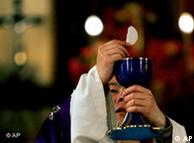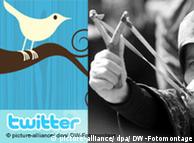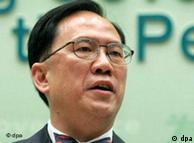Obama Says Afghan Policy Won’t Change

Doug Mills/The New York Times
President Obama, with Vice President Joseph R. Biden Jr., Gen. David H. Petraeus and Secretary of Defense Robert M. Gates, announced his removal of Gen. Stanley A. McChrystal as the top commander in Afghanistan on Wednesday and his appointment of General Petraeus to lead the war effort there.
Published: June 23, 2010
WASHINGTON — President Obama removed Gen. Stanley A. McChrystal as commander of American forces in Afghanistan on Wednesday, and tapped as his replacement the general’s boss and the architect of the 2007 surge in Iraq, Gen. David H. Petraeus.

Notes from Afghanistan, Pakistan, Iraq and other areas of conflict in the post-9/11 era.
A timeline of General McChrystal's tenure as President Obama's top military commander in Afghanistan.
Should General McChrystal be fired for insubordination, or do his remarks reflect a healthy level of dissent?
The latest on President Obama, his administration and other news from Washington and around the nation. Join the discussion.
Luke Sharrett/The New York Times
Gen. Stanley A. McChrystal
Mr. Obama, standing with General Petraeus and Vice President Joseph R. Biden Jr. in the White House Rose Garden to underline the continuity and solidity of his Afghan policy, said that he had accepted General McChrystal’s resignation “with considerable regret.”
Mr. Obama said he had done so not out of personal insult over a magazine article featuring contemptuous quotes from the general and his staff about senior administration officials, but because it showed the general had not met standards of behavior for a commander, which threatened to erode trust among administration and military officials, as well as undermine civilian control of the military.
“War is bigger than any one man or woman, whether a private, a general or president,” Mr. Obama said. “As difficult as it is to lose General McChrystal, I believe it is the right decision for our national security.”
“I welcome debate among my team,” he said, “but I won’t tolerate division.”
General Petraeus, who holds overarching responsibility for the wars in Iraq and Afghanistan as the head of the United States Central Command, would be required to leave his current post to take on his new appointment, which must now be confirmed by the United States Senate. Mr. Obama stressed that the change in leadership did not signal a shift in his overall war strategy in Afghanistan, where thousands of new American troops have been arriving in recent months among increasing casualties and growing questions about the progress of the war.
“This is a change in personnel, but it is not a change in policy,” Mr. Obama said.
The reshuffle injected new uncertainties into relations between the United States and the Afghan president, Hamid Karzai, who had urged American leaders to let General McChrystal remain in place.
“We are not opposing his successor, but we would prefer that General McChrystal come back,” Ahmed Wali Karzai, the influential half brother of Mr. Karzai, said earlier Wednesday, suggesting that the Afghan government was realistic about the possibility that General McChrystal would be replaced.
General McChrystal had proved to be one of the few Western leaders who could work well with President Karzai, building trust and traveling to tribal meetings with him, and personally apologizing when Western military actions resulted in major civilian casualties, which have been a source of deep anger for Afghans.
In a brief statement, General McChrystal said he supported the strategy in Afghanistan and had resigned out of a “desire to see the mission succeed.” His dismissal did not alter his rank, but it was unknown what role he would next play in the Pentagon, if any.
General McChrystal and Mr. Obama met for about 20 minutes earlier in the day, after the general flew from Afghanistan to Washington on Tuesday amid a growing furor over the article, which Rolling Stone magazine posted on its Web site on Tuesday after it had leaked to other news outlets.
The article quoted General McChrystal and his aides speaking critically of nearly every member of the president’s national security team, dismissing Vice President Biden as “Bite Me”; calling the national security adviser, Gen. James L. Jones, a “clown”; and disparaging other top officials.
The firestorm over the article was fueled by increasing doubts — even in the military — that Afghanistan can be won and by crumbling public support for the nine-year war as American casualties rise. The remarks also laid bare the disarray and enmity in a foreign policy team that is struggling with the war.
In replacing General McChrystal, Mr. Obama decisively showed that he remained the ultimate decision-maker on military matters and would not tolerate insubordinate behavior or internal rifts among his top officers.
But the decision also invited criticism that Mr. Obama was shaking up his military command at a crucial moment in the conflict, when coalition forces are preparing to try to take control of the country’s second-largest city, Kandahar, the spiritual home of the Taliban.
Beyond that, Mr. Obama’s war strategy is in many ways a McChrystal strategy. The general devised the plan, which called for thousands of extra troops to fight the insurgency and, perhaps more important, create a sense of security for the Afghan people.
But Mr. Obama said the mission in Afghanistan, where the United States now has more than 90,000 troops, remained unchanged by General McChrystal’s removal. “We have a clear goal,” Mr. Obama said. “We are going to break the Taliban’s momentum. We are going to build Afghan capacity. We are going to relentlessly apply pressure on Al Qaeda and its leadership, strengthening the ability of both Afghanistan and Pakistan to do the same.”
The Afghanistan team has suffered many internal conflicts, including complaints from the American ambassador, Karl W. Eikenberry, about Richard C. Holbrooke, the special representative for Afghanistan and Pakistan. In one episode that dramatized the building animosities, General Jones, the national security adviser, wrote to Ambassador Eikenberry in February, sympathizing with his complaints about a visit Mr. Holbrooke had recently made to Afghanistan. In the note, which went out over channels that were not secure, officials said, General Jones soothed the ambassador by suggesting that Mr. Holbrooke would soon be removed from his job.
The Jones note prompted Secretary of State Hillary Rodham Clinton to complain to Mr. Obama, and her support for Mr. Holbrooke has kept him in his job.
The infighting has been made more severe by the increasingly perilous situation on the ground. Violence in Afghanistan is on the rise. The mission to pacify Marja and Kandahar is far off track. And the effort to create a viable Afghan government is increasingly in doubt because of widespread corruption. Criticism is mounting on Capitol Hill, even among the president’s backers, and many allies have announced that they are looking for the exit, with others expected to do the same in the coming months.
There has been vigorous debate within the administration about how to proceed in Afghanistan, but in the article General McChrystal and his aides did not overtly criticize administration policy.
Rather, the differences revealed were personal. One administration official described Mr. Obama as being particularly furious at a characterization of him in the article as not seeming “very engaged” during that first White House meeting.
Over all, the article depicted General McChrystal at the head of a small circle of aides engaged in what came close to locker-room trash talk as they discussed foreign policy, the French, their allegiance to one another and their own concerns about course of the war. The civilian communications adviser who set up the interview, Duncan Boothby, has resigned.
Helene Cooper reported from Washington and Jack Healy from New York. Reporting was contributed by Dexter Filkins from Kabul, Afghanistan, and Thom Shanker and Mark Landler from Washington.
奧巴馬解除美軍駐阿富汗司令職務

麥克里斯特爾:西點軍校畢業的 職業軍人
美軍駐阿富汗司令麥克里斯特爾上將周三(23日)被總統奧巴馬撤職。
麥克里斯特爾的職務將由另一名四星上將、美國中央戰區司令部司令彼得雷烏斯接替。
阿富汗總統卡爾扎伊的發言人表示,卡爾扎伊尊重奧巴馬的決定。
在過去幾天的《滾石》雜誌風波期間,卡爾扎伊一直全力支持麥克里斯特爾,並且還呼籲奧巴馬不要撤他的 職。
奧巴馬周三在白宮與麥克里斯特爾進行了半個小時的會晤。
奧巴馬說,他遺憾地接受了麥克里斯特爾的辭職請求。
奧巴馬強調,這次更替的只是個人,不會改變美國對阿富汗政策。
「判斷失誤」
麥克里斯特爾在周三的聲明中表示,他決定請辭是為了「見到阿富汗任務得以成功」。
他又再次承認,在《滾石》雜誌發表的言論是「判斷失誤」。
英國政府和北約秘書長都指出,此番更換美軍司令不會改變麥克里斯特爾任內推行的戰略。
在《滾石》的文章中,麥克里斯特爾對奧巴馬總統感到失望,文章還嘲笑了華府其他高官,包括副總統、國家 安全顧問等。
麥克里斯特爾還說,感到被美國在喀布爾的大使出賣,這位大使質疑他派遣更多美軍到阿富汗的請求。
麥克里斯特爾此前已經為自己在《滾石》雜誌刊登的文章作出道歉。
*****
 Bildunterschrift: Großansicht des Bildes mit der Bildunterschrift:
Bildunterschrift: Großansicht des Bildes mit der Bildunterschrift: 

















